What are the chances of finding an old friend on the shores of your stretch of the beach ~ unconscious and upon waking, not knowing who he is? Fortunate for him, you do recognize him, and have loved him for a long time. At least in your memory, you do.
Charlie Kincaid has washed up on the shore, half in and half out of the water. By happenstance, or does he know where he is? Subconsciously, perhaps, as he has been injured and does not remember his mission nor his rescuer.
Fiona Lanier has been grieving the loss of her brother ~ at least to her, as a prisoner of the very people Charlie represents. Confusion and heartfelt protectiveness surface as she secretly decides to bring him back to health on her family premises.
Who will recognize him as the years have tumbled by, to keep him from repercussion of her family's allegiance?
Family interloping from all sides, Fiona is moved from Navy Cove to spend time with cousin Maddy inland at Mobile, away from the throngs of war falling quickly on the Gulf Coast.
Amid war and the disparity between countries, there will be three love stories emerge.
The gallantry of those serving in what they believed in brought them further than they ever would have imagined. Honor and loyalty become turned as trustworthy alliances are met. Beth White brings us right in the middle of family and those they stand to protect. You will come away knowing more than you might have learned in school about this time period as you delve into their personal stories and focus. A surprise ending ~ and middle, as well ~ Fiona is worth winning!
1
AUGUST
13, 1814
MOBILE
POINT
She could set fire to the letter in her pocket and it would still
be true.
Smearing away tears with the heel of her hand, Fiona slid
down from her buckskin mare, Bonnie, and landed barefoot
in the sand. She led the horse to the water’s edge and splashed
along beside her, knee-deep in waves chugging straight up from
the Gulf of Mexico. At home, on the bay side of the isthmus,
the beach was quieter and gentler, but here on the gulf side the
wind tore at her hair and the salt mist stung her eyes. Perfect.
Her brother was on a British prison ship lurking off
the coast
of North Carolina.
The words from that terrible piece of paper floated like sunspots in front of her eyes. Her twin, the other half of herself,
wasn’t coming home this time. Sullivan had been at
sea since
he’d turned fourteen, and in six years had worked his way up
to lieutenant in the new American maritime service.
His letters
had been full of adventure and optimism, and twice he’d managed a few weeks’ leave between assignments.
But this . . . this was so final.
She knew what the British did to prisoners of war.
Grandpére
Antoine’s stories of Revolutionary War days, when he’d been
held in the guardhouse at Fort Charlotte, were burned in her
brain. Short rations, rancid water, little sleep. Beatings.
She shuddered. Their older brother Léon said a prisoner
exchange might be arranged. But who would do that f
or an
insignificant young lieutenant from the backwaters of West
Florida?
There had to be a way. Every day since Sullivan left home,
she’d prayed for his safety, and God had protected him so far.
There
must
be a way.
She threw her arms around Bonnie’s damp neck, pressed her
face into the warm hide, and let the tears come.
Please, God,
don’t take my brother.
Bonnie blew out a breath and stood patiently, while
the waves
rolled in, rocking Fiona, wetting her dress from the knees down.
Eyes closed, she let her thoughts drift to long-gone, lazy summer
days when she and Sullivan had wandered Navy Cove beach,
crab buckets banging against their legs and never a care in the
world. Then came the year she went to England with
Aunt
Lyse and Uncle Rafa, leaving Sullivan behind. By the time she
returned, he’d become a sea-crazy young man, determined to
travel the world on anybody’s ship that would take him.
With a sigh, she looked up at the steely sky. What was done
couldn’t be undone, even by prayer.
The wind picked up, a gust that nearly knocked her off her
feet, so she took up the reins once more. Grabbing
Bonnie’s
mane, she hiked up her sodden skirts and swung astride the
horse’s bare back. Her impulsive ride to the beach
was going
to make her late getting supper together. Yesterday’s storm had
put the men behind at the shipyard. They’d be working until
dark tonight and would come home hungry as bears.
She’d ridden a ways down the beach, lost in thought, when
Bonnie suddenly shied and stopped. Absently Fiona kicked her
in the ribs. Bonnie shook her head and refused to move.
“What’s the matter, girl?” Fiona leaned to the side. Bonnie
had almost stepped on a pile of seaweed all but covered with
wet sand.
Wait, not seaweed. Material. Clothing. A body. A roll of
surf washed up, stirred the folds of cloth, but the body did not
move. Dead?
Oh, please not dead.
She slid down, throwing the reins to keep Bonnie in check.
The body was facedown and hatless. A young man, judging
by the thick, wet dark hair. Kneeling, she flipped him over just
as another wave crashed in, sousing her. Coughing, shivering,
she struggled to her feet and grabbed the man’s arms to drag
him farther up onto the beach. He was tall and muscular, unbelievably heavy, inert as a sack of potatoes, and the tide was
rolling in fast, but she managed to get him out of the reach of
the waves. Bonnie wandered after her, snuffling in irritation.
“I know,” she panted. “This wasn’t in my plan either.” Léon
was going to grumble about supper being late.
She let go of the young man’s arms and dropped to her knees,
then put her ear to the wet wool covering his chest, praying for
a rise and fall of breath. Maybe . . . maybe there
was a faint
thud under her cheek.
Tugging and shoving, she got him turned over, faced
own
again, and pressed the heels of her hands against his back. Push,
push, push, wait. He didn’t move. She tried again.
He seemed to be dead.
She sat there with her hands flat against the broad
back.
What would her brothers have done? She’d heard them
talk
about breathing into the mouths of men pulled from
the sea.
Should she try that?
All but blinded by tears, she hauled the poor man onto his
back and pushed his hair back from his face to look at him.
She stifled a scream. “Charlie!” Grabbing his face in shaking
hands, she tried to make sense of what made no sense. Charlie
Kincaid would be across an ocean, in England, not washed up
on a beach in West Florida. “Charlie, Charlie, don’t be dead!
Father in heaven, don’t let him be dead!”
Not knowing what else to do, she put her mouth to his and
breathed, willing him to come to life. Again she blew air into
his lungs. When nothing happened, she sat up panting, searching the familiar but man-grown face. The same, but
not the
same, as the boy she had known nine years ago. His face had
lengthened with slashing angles of brow, cheekbone, and jaw,
and he’d grown into the commanding nose. But there were the
same ridiculously long, dark eyelashes and a mouth made for
smiling and teasing a bookish, horse-crazy little girl.
“Wake up, Charlie,” she muttered, “or I’m going to tell your
grandfather you’re ditching your lessons again.”
She bent to seal his lips with hers again, but his
chest lurched
under her hands. He gave a strangled cough, and water bubbled
from his mouth. Relieved, terrified, Fiona scrambled to shove
at his shoulder and back until she had him half turned. He
continued to cough, weakly at first, then with hoarse, agonized
gasps. Fiona pounded his back with all her strength
, helping
him rid his lungs of the suffocating seawater. “Don’t die, don’t
die, don’t die.”
Finally she heard him whisper something.
She paused to bend close to his lips. “What?”
“Sto . . .” He wheezed.
“What?”
“I said st . . . stop hitting me,” he choked out. “Headache.”
Abruptly she straightened. “You’re alive! Oh, thank
God,
you’re alive!”
Charlie winced. “Yes, but would you mind . . . lowering the
volume?” He opened his eyes, those familiar, piercing cerulean
eyes that she saw in her dreams.
Well, one was blue, and the other had that odd hazel-brown
splotch. Perfect, Charlie was not. “It’s so good to see you.”
“Er . . . you too.” He coughed. “Do I know you?”
“You don’t remember me?”
He stared at her, his face sunburnt, sand-encrusted
, and bearing a deep, bloody gash over his left eyebrow. But of course he
was Charlie. She didn’t know anybody else who had those oddly
colored eyes. No wonder he didn’t recognize her, though, for
nine years had made a significant difference in her appearance.
As if following her thoughts, Charlie’s gaze traveled downward from her face, and one eyebrow rose with that
droll quirk
she’d loved so much. “I think I’d remember you if we’d met
before.”
Suddenly aware that she all but sat on him, Fiona jumped
to her feet. “Oh, you! You haven’t changed one bit—except it
used to be Maddy you were drooling over.”
“Maddy who? If there’s another one as pretty as you, I’ve
landed in heaven.” He got an elbow underneath him and levered
himself to a semi-sitting position. “What’s your name?”
She stared at him in chagrin. “You really don’t remember?”
“Right now I barely know my own name.” He looked around
irritably. “If I haven’t broken down the pearly gates, where are
we? Did I fall off my horse?”
Fiona looked around and found Bonnie ambling closer,
probably looking for food. “This is
my
horse, Bonnie. You
seem to have washed in from the Gulf. There was a storm last
night.” She paused. She’d heard of people losing their memory
after a head wound. “You had to have been on a ship.” But
where was it? Frustrated, she scanned the empty horizon. There
wasn’t a hunk of wood or other detritus anywhere to indicate
the type of vessel he’d arrived on. She shifted her
gaze to the
east, where an Indian trail ran toward Perdido Pass and on to
Pensacola. Could he have come overland and then gotten injured
and washed into the Gulf during the storm?
Clearly no more enlightened than she, Charlie shut his eyes
and lay back as if too exhausted to even look at her any longer.
Now what was she going to do? She wasn’t strong enough to
lift him onto the horse, and she couldn’t drag him back home
to Navy Cove by herself.
“I could go get Léon,” she said doubtfully.
“So there’s a Maddy and a Léon, and a horse named Bonnie.
I’ll just call you Duchess.”
She whirled to look at him, and found one eye open—the
solid blue one—and his lips curled in a smile. “Then you
do
remember me!” As the only girl in a family full of boys, she’d
been called “Duchess” since she was just a little thing.
“I don’t think so.” The smile faded. “That isn’t really your
name, is it?”
“Of course not. But I told you about it the night we blew up
the—never mind.” Drowning in memory and anxiety and
confusion, she dragged in a breath. “I’m Fiona Lanier. My cousin
Maddy and my aunt and uncle all stayed at your grandfather’s
estate the summer I was eleven years old.”
“If I hadn’t gotten brained and nearly drowned, I’m
sure
I would remember you,” Charlie said gently. “But don’t you
think we ought to get off the beach? Because, and I
hate to
mention it, I think the tide is going to carry us back out to sea
before very long.”
“Oh!” With a start Fiona realized he was right. The
surf had
crawled inland until the waves had almost reached Charlie’s
feet.
He was on his elbow again, clearly intending to stand up.
She shrieked. “No! You’ll faint!”
But he rolled to his knees. “I’ll be fine,” he managed, panting. “Do you have a saddle for that horse?”
“Of course I do, but it’s at home. I just came out for a quick
ride on the beach.” Suddenly she remembered the letter. How
could she have forgotten Sullivan? She wrung her hands. Now
she had an injured British aristocrat to care for, and Léon was
going to be mad as a wet hen.
“All right, well, bareback it’ll be then.” Charlie
was on his
feet, swaying like a man coming off a five-day bender. He lurched
at Bonnie, who quite understandably pranced away from him.
Charlie landed on his rear and began to curse in Spanish.
Laughing in spite of their predicament, Fiona grabbed Bonnie’s reins. “Shhh, it’s okay, girl. He looks like
a lunatic, but
he can’t hurt you.”
Charlie snarled and began again in French.
She let him run down, then said, “I’m sorry she hurt your
feelings, but she doesn’t like to be mounted from the right.”
She reached down a hand. “If you can stand again, I’ll give
you a leg up.”
“She didn’t hurt my
feelings, it’s my
bum
that aches.” But
he laughed and grasped her wrist, coming to his feet with surprising agility. She let him regain his balance with a hand on
her shoulder. He was so tall that the top of her head barely
reached his lips. She looked up at him, trying to find the boy
she’d known in this mysterious stranger.
He stared back at her, his expression just as muddled as she
felt. “I
do
know you, somehow,” he muttered. “I just can’t remember . . . You said my name is Charlie, and that’s right. You
mentioned my grandfather. Where is he? Did he bring
me here?”
“No, he’s—” Did he know he was English? Did he know
there was a war between their two countries? “I don’t know how
you got here. This is Mobile Point, the isthmus that separates
Mobile Bay from the Gulf of Mexico. I live about two miles
across on the bay side, at Navy Cove.”
Charlie squeezed her shoulder in friendly fashion.
“All right,
then, duchess of Navy Cove, if you’d be so kind as to cup your
hands, I’ll endeavor to boost myself onto your trusty steed.
Then I’ll swing you up, and we’ll away.” He grimaced. “We’d
do it the other way ’round, except I fear I’m not exactly in fine
fettle at the moment.”
The deed was accomplished with more comedic effect than
grace, but in a few moments Fiona grasped Charlie’s extended
hand and let him pull her up behind him onto Bonnie’s back.
She put her arms around his waist and took the reins, clicking
her tongue to give Bonnie leave to walk.
She had ridden astride behind her brothers all her
life, but
this . . . clutching Charlie-the-stranger round the
waist just to
stay on, her shins bare and feet dangling, was another kettle
of fish entirely. Not only was it awkward and uncomfortable, but she had enough sense to know that it was
highly
improper. Mama would not have approved. Maddy would
definitely not approve. Léon would likely challenge
Charlie
to pistols at dawn.
None of them must ever know. She and Charlie would enter
the barn from the back, put the horse away, and hope nobody
saw them. She could pretend Charlie had walked all
the way
from New Orleans. Or something.
There had to be some way to explain his presence, his injury,
his obvious Englishness.
Oh, dear Lord, what was she going to do?
~*~
By the time they rode the scant mile across the sandy, jungle-like spit of land, Charlie felt as if an army of Goths had marched
around in his head, leaving death, decay, and destruction in
its wake. No wonder he couldn’t remember this beautiful girl
named Fiona, much less her cousin Maddy or her brother Léon.
She had rattled on about her family behind his shoulder, as if
silence terrified her.
When they at last reached the edge of the woods, where three
more horses grazed in a grassy field outside a large, well-kept
barn, Fiona clutched Charlie’s coat. “Stop! I don’t
want my
brother to see you.”
“Why?”
“Because . . . because he doesn’t like the British.”
“Why not?”
“It’s a long story.”
“Are we in a hurry?” He hoped not. In spite of the
headache,
he was rather enjoying the feel of her slim form pressed against
his back.
“I’m supposed to fix supper for everybody, and . . .
” She
paused as if searching for another excuse, then released a gusty
sigh. “My brother Sullivan says if you have to lie,
you’d best
stick as close to the truth as possible. I’ll tell them you washed
up on the beach, and you don’t remember who you are.”
“Sullivan? Another brother? Will he also object if
he finds
out I’m British?”
“I’m sure he would if he saw you, but he’s on a prison ship
off the coast of Carolina.”
He turned to look at her. The words had been spoken stiffly,
without inflection, but there was no mistaking the tremble of
her lips. Suddenly the pain in his head roared, and
nausea overtook him. “Miss Fiona, I . . . I fear I’m about to
cast up my
accounts. Perhaps you’d better look the other way.” He leaned
over the horse’s neck.
“Oh, Charlie, I’m sorry!” She slid to the ground. “Here, get
down before you fall. I’ll hold your head.”
“No—”
But she was already pulling him toward her, and he
had no
choice but to awkwardly slip-slide down from the horse. He
managed to stagger off behind a tree, where he knelt
and proceeded to be violently sick. The world turned green, then blue,
then dark purple. His shoulder hit the tree hard as
everything
went black.
He woke sometime later in a shadowed room with a streak
of dying sunlight slipping under the curtain over the single
window. The aroma of food, perhaps roasted chicken, turned
his stomach, and he rolled over, covering his mouth and nose.
“Charlie! Be still! You’ll start your head bleeding
again.”
Fiona’s voice came from the open doorway. He heard her hurried steps approaching.
He gained control of the gagging sensation. “Somebody just
. . . shoot me.”
“That’s not funny. You’re lucky to be alive.” She sounded
aggrieved, justifiably, he supposed. He would be an
inconvenient
houseguest.
He rolled onto his back and touched the thick bandage holding his forehead together. It hurt like blazes. “Where are we?”
“My bedroom. It’s next to the kitchen, where I can keep an
eye on you.”
“Your brother allowed this?” He squinted upward at Fiona.
“It was his idea.” Swathed in a big white apron, sh
e flitted
about, tucking the coverlet over him and adjusting the curtain.
“He’s really a very kind man, Charlie. He wouldn’t throw you
out in this condition—in fact, he and Oliver carried you in.”
“Oliver?”
“My cousin.”
“How many cousins do you have? Never mind.” He could
only take in so much information at a time. Strange
that he
could carry on a conversation, understand basic concepts like
cousins and brothers and aprons, yet couldn’t remember what
he’d done yesterday. Fiona had called him by name. Somehow
she knew him, yet she wanted to hide his identity from the rest
of her family. “Sit down so I can see you,” he said abruptly.
Her hands went to fists at her hips. “You are not my
lord,
and I am certainly not your servant.”
“That’s not what I meant.” But had there been a note of
imperiousness in his voice? He sighed. “Miss Fiona, you must
forgive any bad habits from—from my past. I am of course
grateful for your rescue. I owe you my life, I’m certain. I merely
want to look at your face when we talk. Please?”
The fists relaxed. She went to the kitchen, returned
with
a ladder-back chair, and set it down close to the bed. Seating
herself, she turned a pair of big blue eyes upon him, along with
a faint smile.
He felt better immediately and caught her hand to bring it
to his lips. “Thank you. Now, please, where are we?”
“I told you—”
“Yes, yes, your bedroom, but what country? What city?”
“Charlie, this is America. Navy Cove isn’t really a
city. It’s
just a little community near the fort—Fort Bowyer. The closest
city is Mobile, but that’s half a day’s sail up the bay.”
Thinking made his head hurt, but he gave it his best effort.
Try as he might, however, he had no recollection of
traveling
toward a city called Mobile. “What year?”
She stared at him. “1814. What is the last thing you remember?”
He hesitated. “I was sent down from Eton.” Everything after
that was a jagged blur.
Her eyes widened. “You don’t remember meeting me and
my family?”
“No. But if you tell me I did, I’ll have to believe you.”
“This is insane.”
“I’m not insane. I just don’t—”
“I didn’t mean—”
They stared at one another for a long moment. Fiona
bit
her lip.
Charlie closed his eyes. “My head hurts.”
He felt a small callused hand laid gently upon his
brow. “I’m
sorry,” Fiona said. “I think you’d better rest, so
I’ll leave you
alone. But first, do you want something to eat?”
Charlie’s stomach rumbled. He laughed. “I don’t know how
one can be sick and hungry at the same time. But something
smells good.”
“Dumplings. I’ll fix you a plate.” Her thumb gently brushed
his eyelid. “There’s a doctor in Mobile. I could send for him.”
Alarmed, he looked up at her. “No, you’re right. The fewer
people who see me the better. A good night’s sleep will put me
right as rain.”
“I hope so.” Fiona withdrew her hand and rose. “I’ll bring
you something to eat.”
He watched her disappear into the kitchen again. Not daring to sit up, he carefully turned his head to look around. The
dying light revealed a small room, barely larger than a closet,
with walls made of some rough plaster-like material
and a
high-beamed ceiling. He ran his hand along the wall to his left.
It felt like seashells embedded in the plaster. Strange.
It seemed the Laniers were not wealthy people.
So how would a young lady living in an American coastal
village cross paths with the son of a British earl?
He picked
through their conversation on the beach. She claimed to have
visited his grandfather’s estate with her aunt, uncle, and cousin
. . . Maddy? Yes, that was the name. He had no memory of such
a meeting, but neither could he deny it.
One thing he knew for certain. Concentration on anything
beyond his physical body was cursed painful. He must lie very
still and allow his head to heal—and hope the protective brothers and other assorted relatives of his attending angel did not
decide to put a period to his existence for reasons
beyond his
control.
Beth White, The Magnolia Duchess Revell Books, a division of Baker Publishing Group, © 2016. Used by permission.
Author Beth White ~ teaching chorus and piano in an inner-city public high school by day,
while conducting a secret life as a romance writer by night.
***Thank you to Revell Reads Fiction for sending me a review copy of Book 3 in the Gulf Coast Chronicles,
by Beth White. This review was written in my own words. No other compensation was received.***
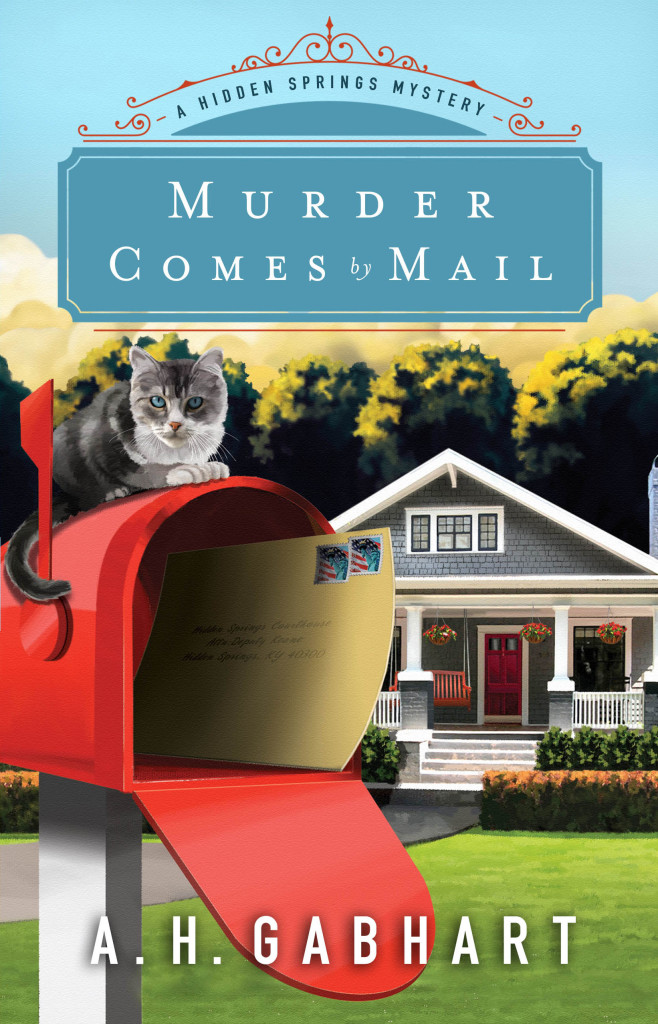

 I'm the press guy for the Hidden Springs Gazette, best local newspaper coming out on Wednesdays, in our area anyway. When the nearby towns get a whiff of my front page photos, all the other editors will be clamoring for a piece, at a price, of course. Dusting off my camera, I finally have some trading to do. Some guy deciding whether to jump off that Eagle River bridge, famous for previous attempts in the past. Well, one guy made it to tell about it. Those others just washed down. Morbid, I know. Alert Deputy Keane took care of his plan. A rescuing hero for my paper, I'd say!
I'm the press guy for the Hidden Springs Gazette, best local newspaper coming out on Wednesdays, in our area anyway. When the nearby towns get a whiff of my front page photos, all the other editors will be clamoring for a piece, at a price, of course. Dusting off my camera, I finally have some trading to do. Some guy deciding whether to jump off that Eagle River bridge, famous for previous attempts in the past. Well, one guy made it to tell about it. Those others just washed down. Morbid, I know. Alert Deputy Keane took care of his plan. A rescuing hero for my paper, I'd say! Betty Jean
Betty Jean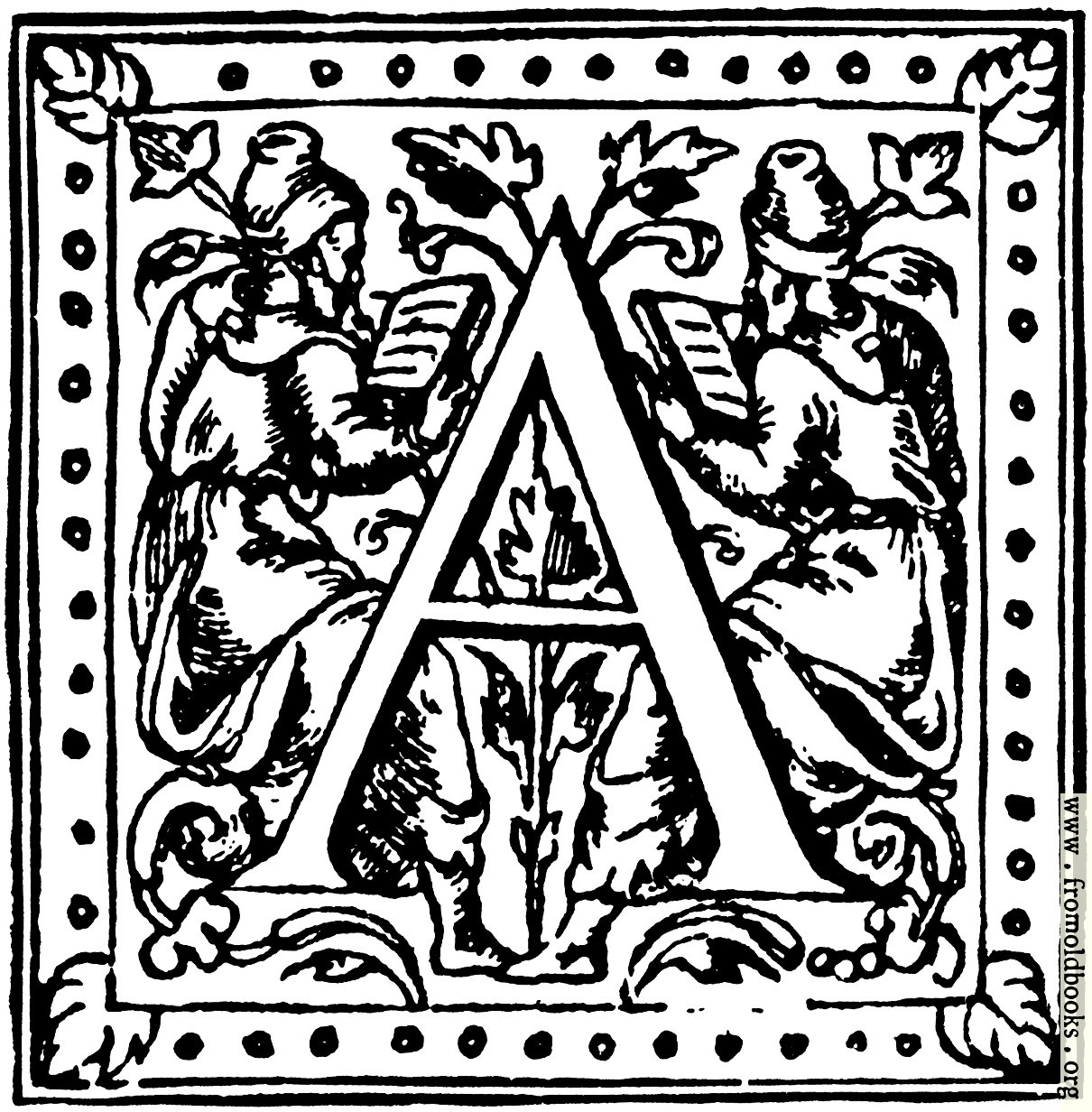 Ann H. Gabhart is the bestselling author of many novels, including Angel Sister, Small Town Girl, and Love Comes Home, the
2015 Selah Book of Year winner. She’s also known for her Shaker novels
and Heart of Hollyhill books.
Ann H. Gabhart is the bestselling author of many novels, including Angel Sister, Small Town Girl, and Love Comes Home, the
2015 Selah Book of Year winner. She’s also known for her Shaker novels
and Heart of Hollyhill books. Look for her cozy mysteries as A. H. Gabhart.
Her new Hidden Springs mystery series is set in a small town much like the
Kentucky town where she grew up. She and her husband have three children
and nine grandchildren and still enjoy country life on a farm near that
small town.
Look for her cozy mysteries as A. H. Gabhart.
Her new Hidden Springs mystery series is set in a small town much like the
Kentucky town where she grew up. She and her husband have three children
and nine grandchildren and still enjoy country life on a farm near that
small town.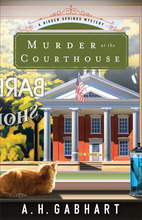




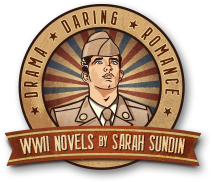



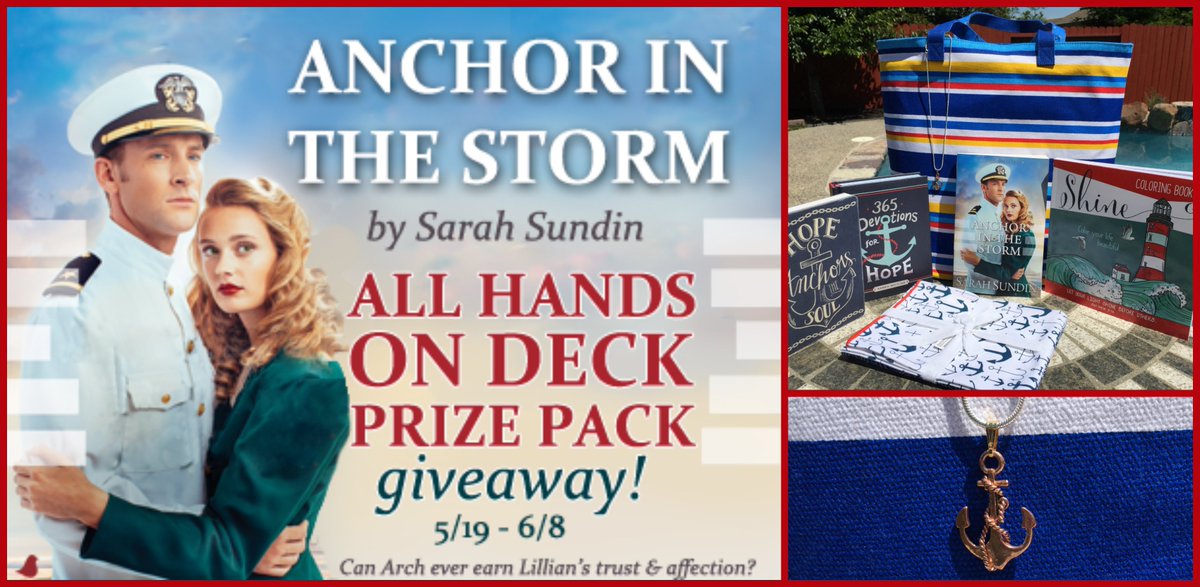 Click
Click 












